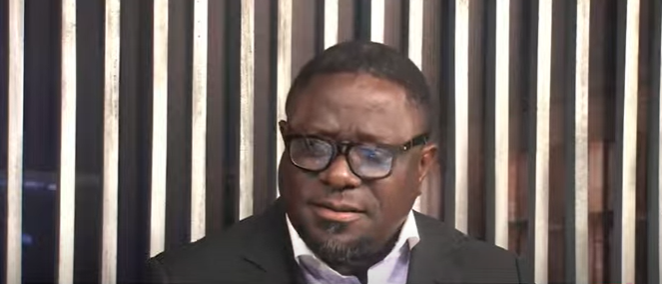President of the Association of Ghana Industries (AGI) has called for a united national front in response to the 10% tariff imposed by the United States on Ghanaian exports.
Dr. Humphrey Ayim-Darke stressed that this is no time for isolated or reactionary decisions but for “collective engagement” involving government, industry, and regional partners.
Speaking on Joy News’ PM Express Business Edition on Thursday, April 10, he stated the need for Ghana to respond strategically, rather than emotionally, to the unfolding development, which threatens to undermine the country’s already fragile export earnings and fiscal stability.
“We don’t have to be issuing statements that might bring ripples into the system,” he cautioned. “It is still an unfolding event—we are studying it and the dynamism it comes with.”
While a 90-day pause in implementing the new U.S. tariff regime has provided some breathing room, the AGI president stressed that this window must be used wisely.
“But for the 90-day pause, we would have been in a higher anxiety. But for now, we are taking the opportunity to consult—engaging government and our counterparts.”
In this regard, he called for a holistic national approach.
“It will be useful if the country does some form of collective engagement. We need collective engagement,” he said, underscoring that the consequences of inaction or disjointed responses could ripple across sectors, from trade to inflation to monetary policy.
Dr. Ayim-Darke did not mince words about what’s at stake.
“The Finance Minister knows that if he doesn’t get it right, he’ll have a tough time balancing his books, getting his revenue, getting domestic revenue, which is largely based upon imports,” he said.
“Significantly, about 50% of domestic revenue comes from the ports, and these are largely imports, and then from exports as well, which are from the cocoa.”
But the cocoa sector has already taken hits.
“Unfortunately, we know we had a cocoa drop by virtue of the events of the galamsey and the cocoa export,” he said.
“Leave that of the crude oil aside.”
Dr. Ayim-Darke warned that if the government fails to stabilise export markets like cocoa, the ripple effects will touch every aspect of Ghana’s economy.
“Are you worried about the uncertainty and the impact on fiscal and revenue as well? Oh yes, because it has a ripple effect,” he said.
“If you’re not getting enough domestic build, you slap more monetary policies on us, and it will trigger the policy rate, lending rates. And the cycle continues—and it has a consequential effect on the U.S. dollar as well, which is a medium of trading.”
He also expressed concern about disparities in how Ghana and its West African neighbor, Côte d’Ivoire, are being treated under the U.S. tariff regime.
“That is why we are also concerned about the disparity between the tariffs on Ghana and Ivory Coast,” he said.
“We are together seeking to harmonize our total cocoa export and the benefits to the farmers. Now, within 10, they are being 14.”
This, he warned, could create long-term trade distortions.
“So what will be the impact on our trade? When we think that, oh, we have a 10%—it’s good for us? Look, once today you are happy, the next time, it will all catch up with you.”
Dr. Ayim-Darke also raised alarms about the indirect effects of the tariffs, including potential inflation in the United States and its knock-on effect on remittances to Ghana.
“Remittances have become part of our inflows,” he noted.
“If the inflationary rate hits the U.S. by virtue of the tariffs on cocoa or chocolate or other products, and the consumers’ disposable income is reduced, how much remittances will come to your family? And that will affect government too.”
His conclusion was clear: Ghana cannot afford to look at this crisis in isolation. “You cannot look at this in isolation,” he warned.
“We need to be concerned with looking at the macro picture and the micro picture.”
DISCLAIMER: The Views, Comments, Opinions, Contributions and Statements made by Readers and Contributors on this platform do not necessarily represent the views or policy of Multimedia Group Limited.

